Surviving one of the biggest earthquakes recorded in history
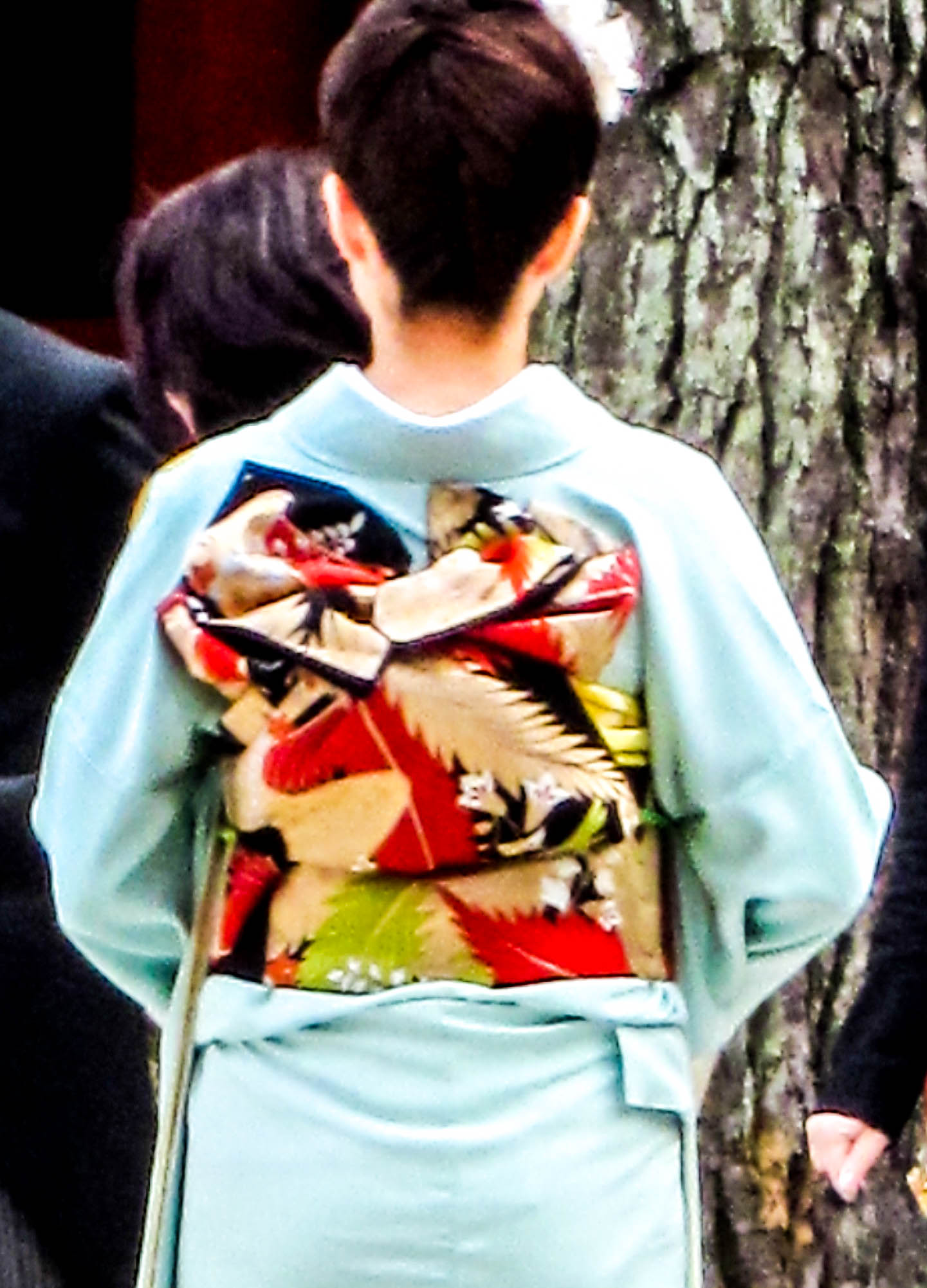 On March 9, 2011, I was ticked off that I was unable to celebrate my birthday the way I wanted. I was finishing up my work as a military life consultant on an Air Force base in Japan. I realize now what a champagne problem that was...to have a stressful day on my birthday.
On March 9, 2011, I was ticked off that I was unable to celebrate my birthday the way I wanted. I was finishing up my work as a military life consultant on an Air Force base in Japan. I realize now what a champagne problem that was...to have a stressful day on my birthday.
Two days later I would experience one of the strongest earthquakes ever recorded in history.
As I huddled inside the door frame that Friday afternoon on March 11, I tried not to panic.
I walked up the outside steps to the 2nd floor of a building on the Air Force base where I’d been working for the past three months.
Immediately, I was met by four women whose faces were panic-stricken. “It’s an earthquake!” they shouted. I tried to calm myself. But I immediately felt nervous and scared.
It took a second, and then I felt the scary, unnatural sensation of the building rocking and shaking. I HATE EARTHQUAKES. I've been in enough of them to know that you have no control over anything during those moments.
I tried comforting myself by remembering that the building was reinforced that Japan has strong earthquakes all the time
This one couldn’t be that bad.
As the building shook more violently, my anxiety increased.
I've got to get out of here, the thoughts raced through my mind. I fought the strong impulse to run down the steps.
But where? I could see tall trees and buildings, light poles, and telephone poles, but no open spaces.
I was terrified, and I didn’t feel like waiting for the building to collapse down around me.
The five of us squeezed inside the door frame, trying to stay calm, but I could see the terror in everyone’s faces. I glanced out of the corner of my eye and saw steel light poles swaying back and forth like palm trees.
The worried, freaked-out part of me kept thinking…it’s all going to come down now, and we’re going to be under the rubble.
After a very long while, which seemed like forever, the shaking stopped.
We dashed inside to one of the offices and checked out how strong the earthquake was. All I wanted to do was to get out of that building.
And then the shaking started up again.
Looking out the window, I saw a different set of light poles swinging, swinging, swaying. I couldn’t tell whether my body was reacting in some weird way, whether it was an aftershock, or still part of the big tremor.
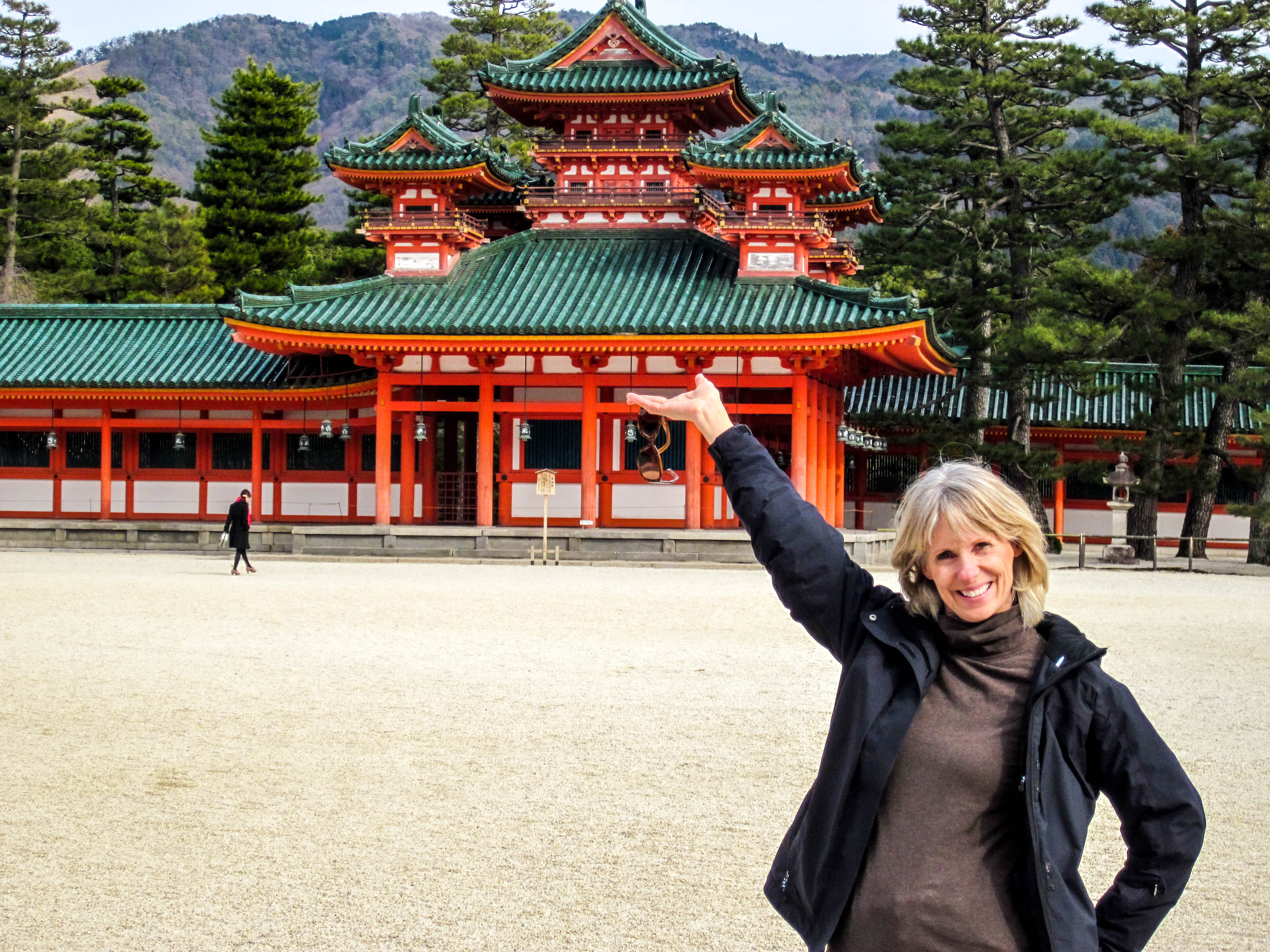
This is me a few weeks prior to the earthquake, a carefree tourist in Kyoto.
I was loving my time in this beautiful country. I was happy and at peace seeing all the beautiful temples and shrines.
When I managed to get back to my hotel room, I turned on the TV and was stunned to discover that I had experienced one of the worst earthquakes ever recorded. It was 8.9, and the epicenter was off the coast of Sendai, about 140 miles away.
In disbelief, I watched the tsunami rolling over farmlands in Northern Japan in REAL time.
My brain refused to compute what I was seeing…. cars and ships bobbing up and down like toys in a bathtub. A huge wall of water was making its way over vast tracks of farmlands. I forbade myself to think that people were in those cars and on those ships.
I made up a story in my head that no one was in the boats. It was too sickening even to consider.
A few hours later, I received a call that eleven planes had been diverted from Narita, the Tokyo airport, to the Air Force base where I worked. Two of the planes were stranded and included 600 passengers.
My colleagues and I were called in to help that night.
I was grateful to contribute in a small way while passengers bedded with blankets, pillows we supplied to them in a huge room to rest their already jet-lagged bodies.
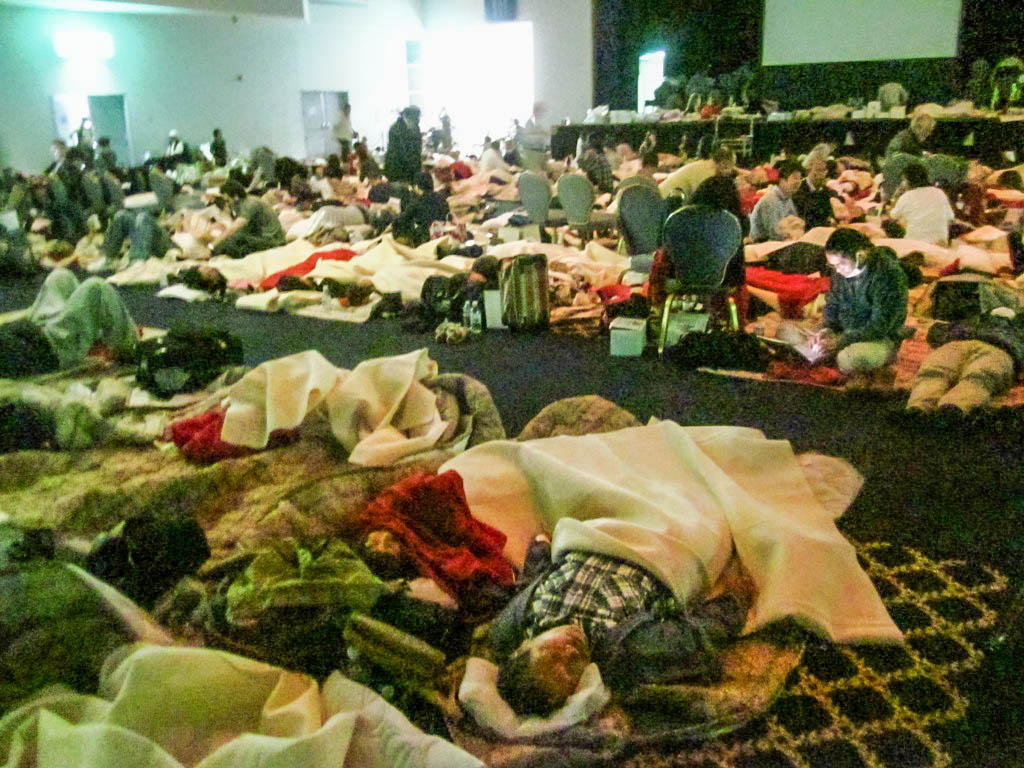
Passengers from diverted planes tried to get some sleep on the floor
What we were going through that night seemed surreal.
Passengers deboarded the planes and only knew there had been an earthquake. They were asking me, "What happened?"
I sat next to a woman from Sendai, the epicenter. She didn’t speak any English. She cried openly, not knowing how her family members were with no contact with them.
Again, I felt sick and disoriented during this surreal event. For me, doing anything to help was soothing, even though it meant walking around all night just talking to the passengers and the volunteers.I was scheduled to leave the base two days later for home and was told not to expect to get to the airport.
I must have had a phantom guardian angel paving the way for me.
At each step of my return to the US, I escaped the never-ending warnings that I wouldn’t make my flight out of Japan because the entire Tokyo train system was shut down because of rolling blackouts.
I got on a bus from the Air Force base to the airport. Miraculously, the bus successfully arrived at the airport 2½ hours later.
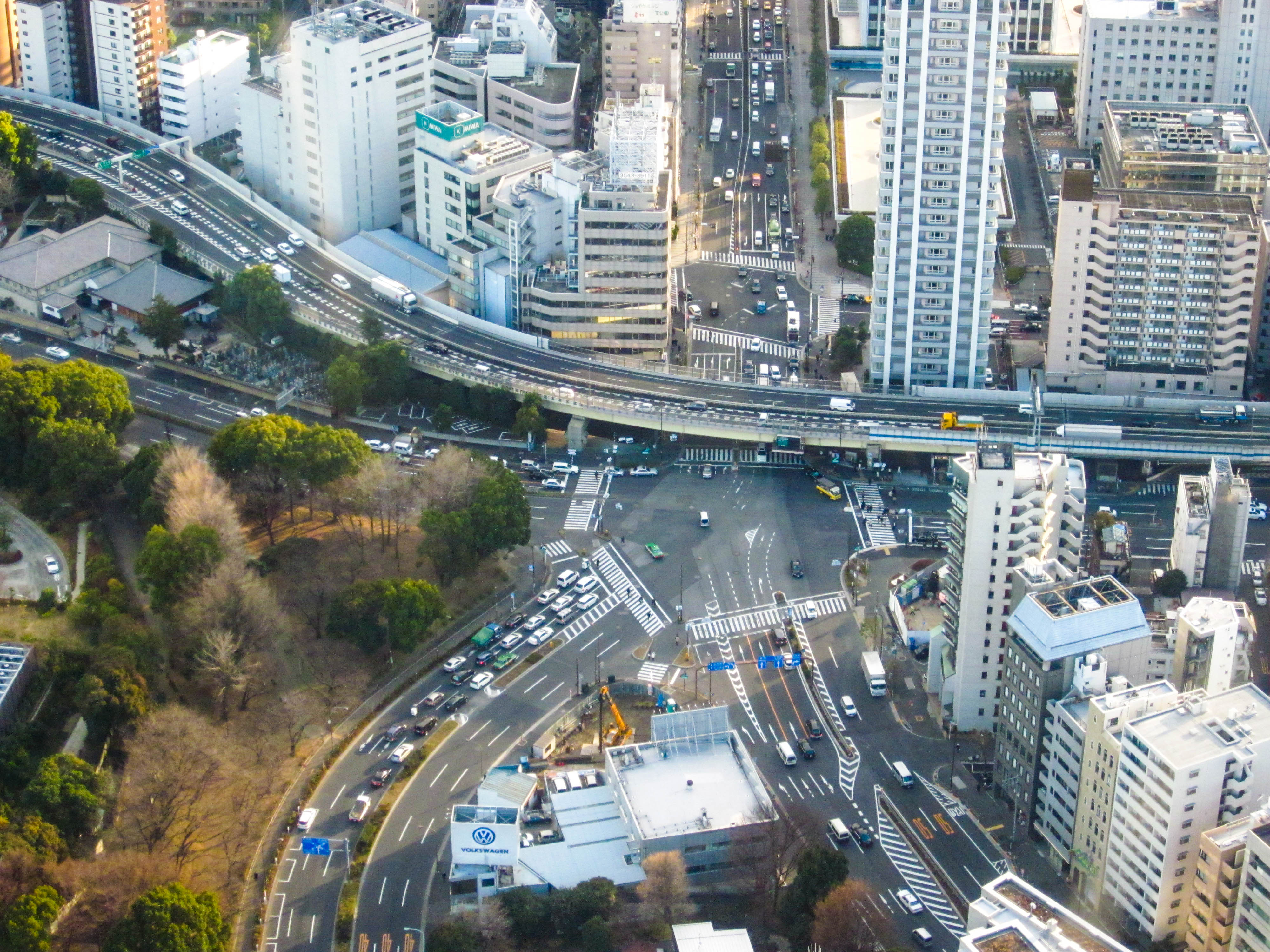 Despite being warned that checking my baggage would take hours and hours, I checked in curbside in ten minutes. The attendant told me to hurry and that security was only open at certain times due to the blackouts.
Despite being warned that checking my baggage would take hours and hours, I checked in curbside in ten minutes. The attendant told me to hurry and that security was only open at certain times due to the blackouts.
After 30 minutes, I sat at the gate, well past security and ahead of time for the flight.
As I sat there trying to make sense of everything that had happened in the past two days, I felt two strong aftershocks.
I spoke to a young Japanese woman with a baby. She and her husband paid an exorbitant price for their airline tickets just to leave the country. We were all freaked out.
All of this happened before the nuclear reactor in Fukushima became unstable. I was so grateful to leave when I did.
As I sat at the airport waiting for my flight, I reflected on how many trips I had on the weekends in Japan and how beautiful it was to see the temples and the cherry blossoms. It was a once-in-a-lifetime experience.
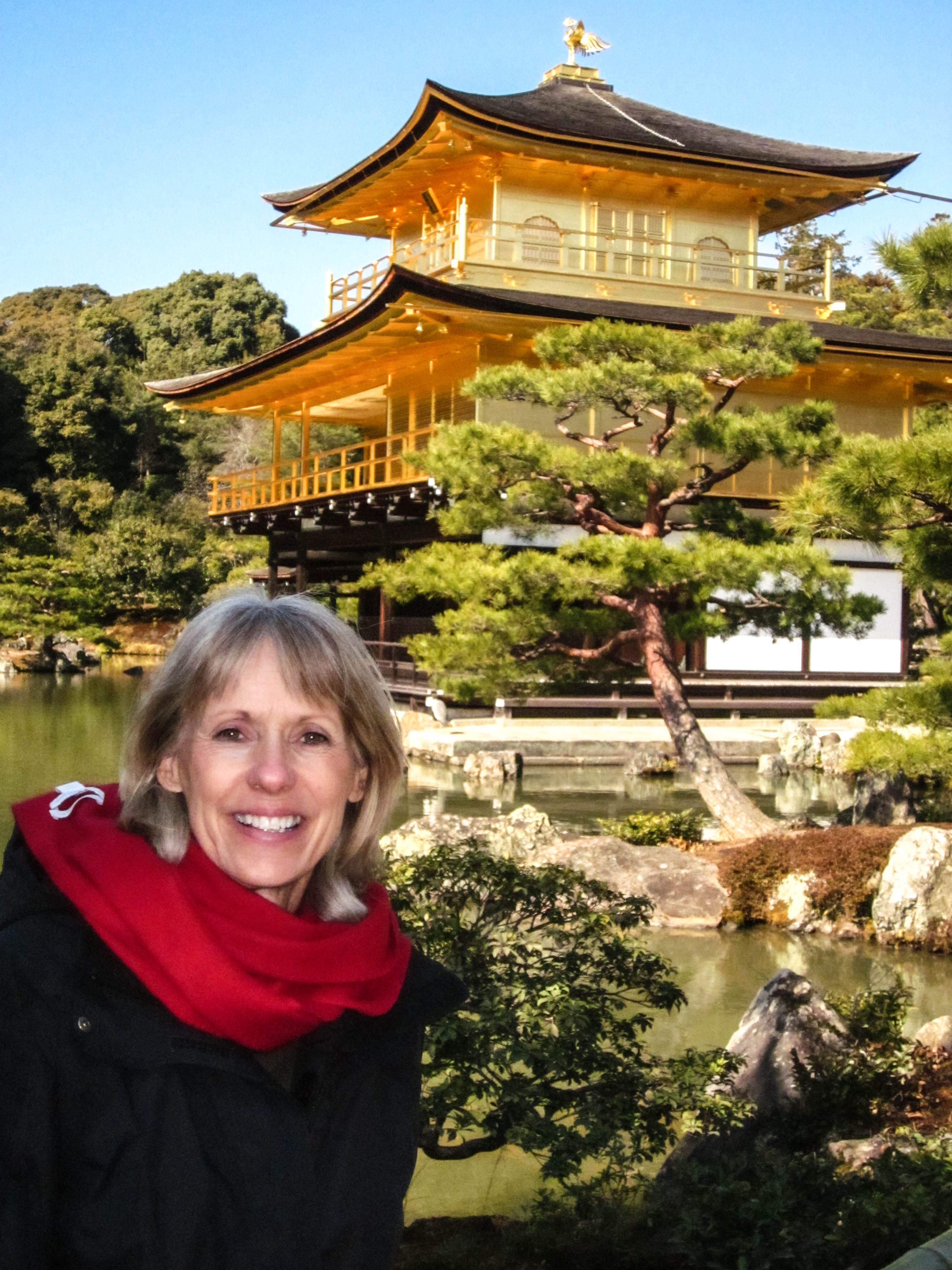
I have never been so grateful to return home as I was that Monday. I was met at the airport by my husband, whom I hadn’t seen for three months. I was thrilled to see him, feel safe, and see our home again.
Three days later, we drove South to see our son Rob and his wife in San Diego. This was a day I dreaded, had tried not to think about, and had at last arrived….Rob deployed to Afghanistan for seven months at that time.
As I hugged him goodbye, I thought about how fragile life is.
At this point, I did what most people do when deploying, whether service members or family members back at home. I shelved all my emotions. I went numb. I didn’t allow myself to feel anything. I was in survival mode.
A few days later, less than two weeks after arriving home, I was called to a nearby Air Force base to help with the voluntary evacuation of military families coming from Japan.
It was a bizarre experience to be able to be on the other side of the whole ordeal.
I pay huge tribute to the military service members, the civilians who work on the base, and the volunteers who prepared for every detail to take care of the family members as they stumbled off the planes from the flights from Japan.
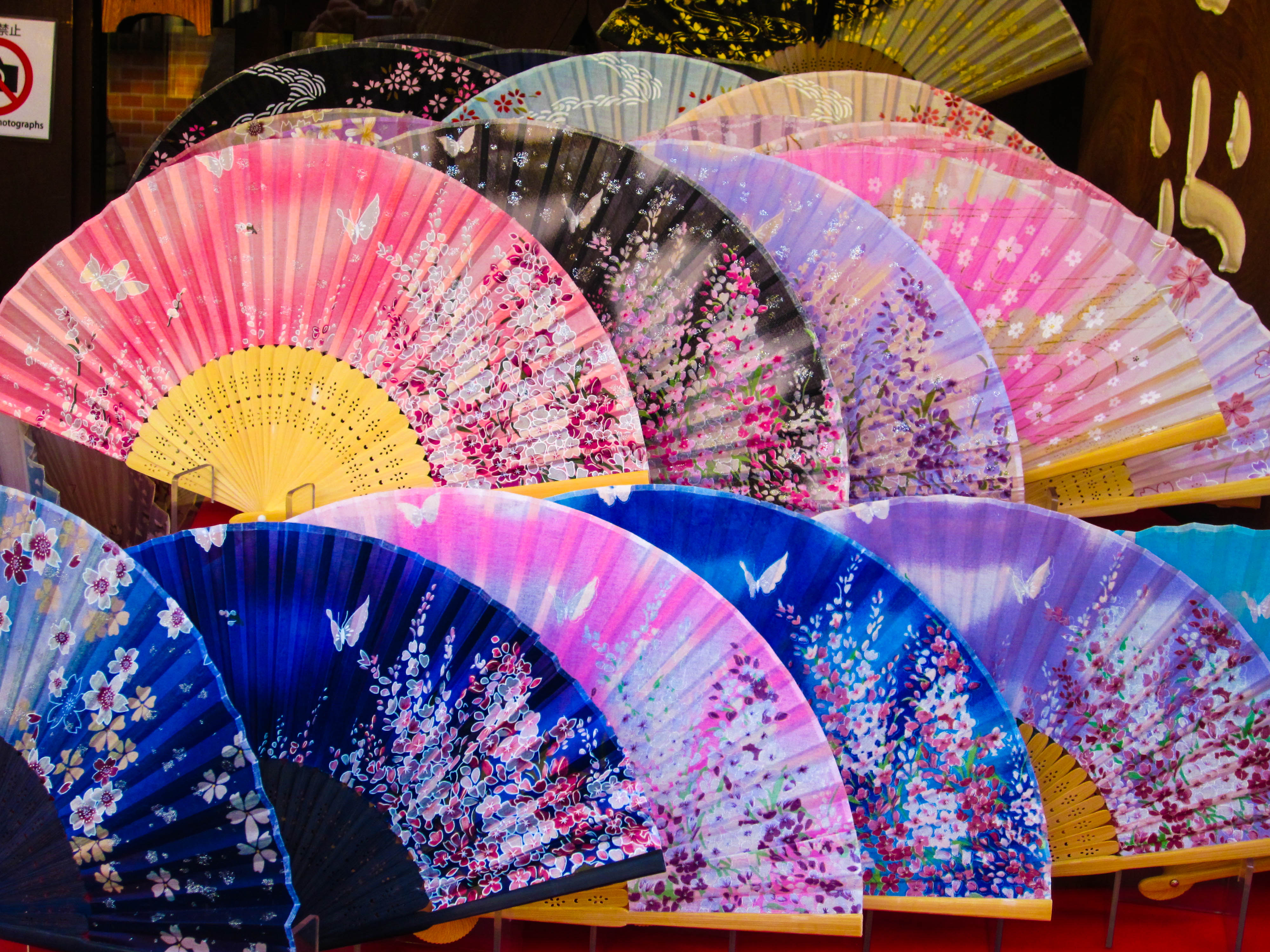
All were exhausted. Many worried, but they were greeted with tremendous warmth and compassion. This was the same phenomenon of graciousness I had experienced in Japan on base when the passengers were diverted after the earthquake. I was proud to be a small part of it.
There are so many hidden heroes in this story.
My deep respect goes to the Airman and Family Readiness Center staff, who worked around the clock in Japan helping families from various bases in Japan evacuate.
The Japanese in Northern Japan suffered immensely from the tsunami and the radiation scares. Those nuclear reactor workers working endlessly to make things safe…. are the heroes.
I can't say enough about the Japanese people: how there was no looting, no stealing, only working together to rebuild, to find their loved ones, to assign themselves tasks to work as a unit. The Japanese are resolute people and they refused to be defeated.
Imagine for a moment what it would be like to lose your family, your home, your life as you knew it.
This is what the people near Sendai experienced.
As a therapist and coach, I know how our brains struggle to make sense of too much happening all at once in a short time. I observed myself oddly acting “normal.”
I watched myself cleaning my house almost in a robotic fashion and realized I was trying to have control over something again. I craved the familiar, to feel safe again.
I recognized that I, too, had been traumatized like everyone else.
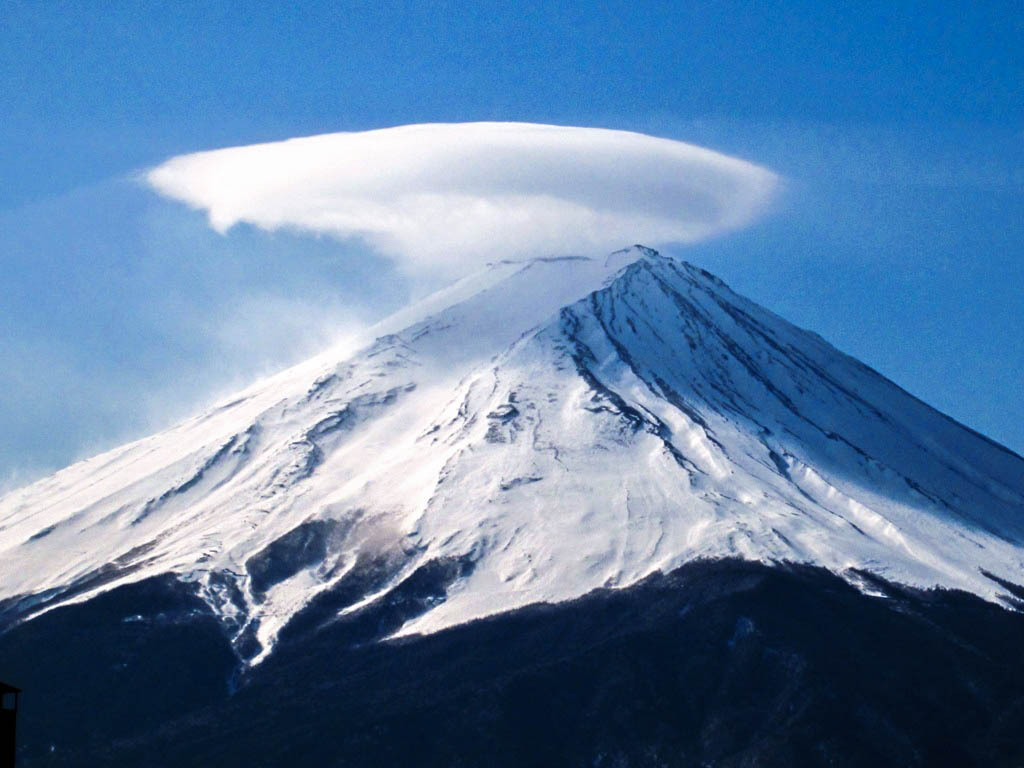
This is Fuji-san...Mount Fuji is the sacred mountain the Japanese love.
I visited Mt. Fuji the week before the earthquake and captured this lenticular cloud on top. To me, it symbolizes peacefulness. And yet, we know that a volcano can erupt at any time.
WE CAN NOT PREDICT WHAT WILL HAPPEN, AND NOTHING STAYS THE SAME
This time in my life, in Japan, was when the world seemed crazy: earthquakes, radiation, tsunamis, and sons deploying to war zones. It was a lot to take in, as it was with the pandemic and now with the climate crisis.
As I worked my way through my own experience, I recognized that we sometimes shut down to preserve, to avoid a meltdown, we hit the circuit breaker to cope.
And this is okay. It’s normal. It’s called resilience and adaptability.
These are some thoughts that kept me on track during this scary time:
1. Gratitude. Remember, you're still here when you think things can’t get any worse. When you focus on what you have, the blessings, and the goodness that you have in your life, fear subsides.
2. Fear. Talk back to it. Fear doesn’t help anything. It gets us into trouble, thinking about what could have happened, what might happen.
3. Live Bold. Keep living, doing the things that mean something to you. Don’t forget that everything is changing all the time, in almost every way. Nothing stays the same.
4. Balance. Find the key between becoming insanely busy and having too much time on your hands. For most of us, this is always a challenge. Listen to yourself, and you will know when it’s time to rest and when it’s time to be active.
5. Flowers. Buy yourself flowers. Or grow them and then pick them from your garden. Flowers say you’re worth it. You can do this. You’re alright. It’s normal to shut down, scream, lose things, and think of the worst-case scenario when you have big things going on.
6. Take notes from the Japanese on how they handled their tragedy. No looting, just working together, finding a solution, designating who will do what, committing to rebuilding. They are resolute people. They don’t give up hope. They keep going.
And so when life gives you more than you can seemingly handle, this is what you do.
OVER TO YOU:
When were you the most afraid and what did you do?
Take your journal out and write about it. Write about how you dealt with your fear. Acknowledge yourself for being adaptable and resilient.



